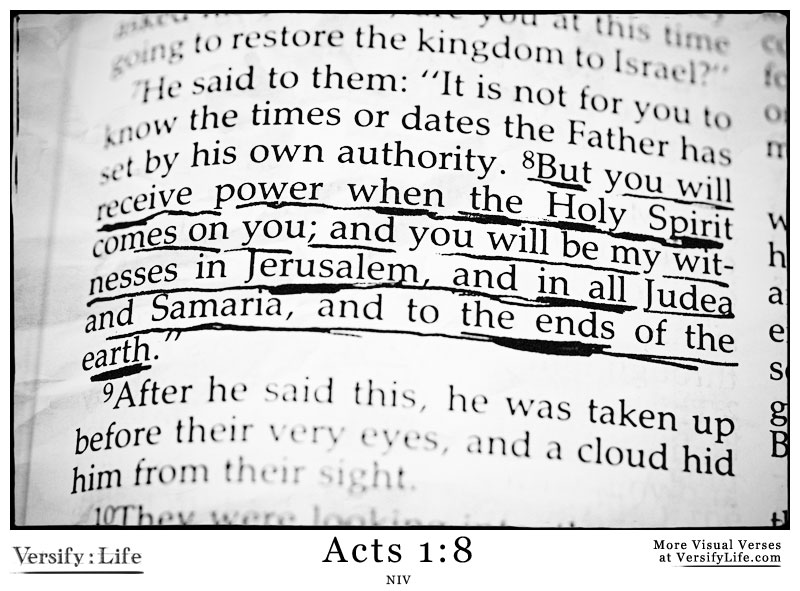I struggle with sin. You struggle with sin. We all struggle with sin. We won’t be sinless until life on earth is over. But as we trust and follow Jesus, through the work and power of the Holy Spirit, we CAN “walk in newness of life.”
The Problem with Romans 7
Over the years I’ve heard (and mistakenly taught) Romans 7 described as the Christian struggle with sin. “I can’t do what I want to do, I do what I don’t want to do.” But is that what the Apostle Paul was talking about? I do not believe so.
This post lays out the issue and context of Romans 7. The next post or two will lay out what I believe are the correct biblical arguments for sin the life of Christians, and the how-to of Christian growth.
Romans 7: The issue seems clear
Paul is answering the rhetorical question stated in Rom 7:13a, “Did that good thing [Mosaic Law] become death to me?” The answer is clearly no. This is a common occurrence in Paul’s letters. Similar questions occur in Rom 3:1, 9; 6:1, 15; 7:7; 11:1, 11, in each case introducing an argument.
Is it clear from the question in 7:13 and the connectives and concepts following that 7:13b-25 is an answer to 7:13a. Therefore, this passage (7:13b-25) is an answer to a question regarding the Mosaic Law, since there can be no doubt that the good thing refers to the Law.
- The issue in the entire book concerns the Mosaic Law vs. faith.
- The immediate context (7:1ff) discusses the Mosaic Law.
- The word law (nomos) is used approx. 195 timed in the NT. 180 times it refers to the Mosaic Law. The few remaining uses refers to a principle, OT Scripture, or the Law of Christ = love (Jn 13:52). None of these are viable options in Rom 7:13.
The issue at hand concerns the Mosaic Law and answers the question, “Did the Mosaic Law become death to me?” The issue is not specifically sanctification. The approach is similar to Rom 6:1 and 15, which are not discussing sanctification per se, but in each case is answering a specific objection in the form of a question.
The Subject of Romans 7: Inability to Keep the Law
The answer to the question raised in 7:13a is that the Law is not death. The Law manifests the sinfulness of sin, since sin used God’s good Law to produce death in the individual.
Verses 14-25 give further details that explain the answer. The individual agrees with the Law and its requirements. He serves the Law with his mind, etc. (v. 25). However, he is unable to meet the requirements of the Law.
This passage makes it clear that the trouble is not with the Law, but with the individual. The Law is holy, and good, but the individual is subverted due to sin. The same basic issue is described in both 7:7-12 and 7:13-25. Chapter 7 explains that the problem with the Law is that it is weak through the flesh.
Romans 7 Only Fits the Non-Christian
Note, this person:
- is “sold under sin” (v. 14)
- does not do the good requirements of the Law as he desires, but does that which he does not desire
- is not able to accomplish the good he desires (vv. 15-18)
- is captive to the sin in his members (v. 23)
His mind agrees with the Law, but he cannot meet its requirements (v. 25). The situation described in Rom 7:13-25 is precisely the situation of the non-Christian man, according to Rom 7:5. However, the Christian man has been delivered from this (7:4-6).
The non-Christian man is described as in the flesh (7:5) and contrasted with the Christian. The same description fits Rom 8:7-8 where the non-Christian is described as not able to be in subjection to the Law, as in the flesh (cf. 7:5), and is contrasted with the Christian, who is in the Spirit.
The non-Christian is a slave to sin (6:17). In contrast, Rom 6:14 explicitly states that the Christian is not under the domination of sin (as the man is in 7:13-25). According to 6:14-15 he is not under the Law, has been freed from servitude to sin (6:18, 22), and has fruit unto sanctification rather than unto death (6:21-22).
All of the descriptions of the non-Christian fit the man in 7:13-25, but none of the descriptions of the Christian apply to 7:13-25.
This description is in conformity with the function of the Mosaic Law. The individual concerned is under the Law, not grace. Rom 3:19 says that no flesh is saved by the Law, but through the Law is the knowledge of sin; this is precisely the issue in Rom 7.
Romans 4:15 says “…the law brings wrath. And where there is no law there is no transgression.”
Romans 5:20 states “The law was brought in so that the trespass might increase. But where sin increased, grace increased all the more.”
Romans 6:14 “For sin shall no longer be your master, because you are not under the law, but under grace.” This verse indicates that being under the Mosaic Law allows sin to work in the non-Christian to bring forth death (as in Rom 7).
Romans 8:7-8 “The mind governed by the flesh is hostile to God; it does not submit to God’s law, nor can it do so. 8 Those who are in the realm of the flesh cannot please God.” These verses indicate that the non-Christian is not able to obey the Law (as the person in 7:13-25).
The Christian is not under the Law nor does he have any obligation to the Law, nor would Paul spend six chapters proving this point and then place a Christian under the Law in chapter 7. See the direct statements in Rom 6:14, 15; 7:4, 6; 8:3 (cf. Gal 3:23-24). The fact that this man is attempting to meet the requirements of the Mosaic Law is contrary to Paul’s description of a Christian.
The Overall Context of Romans 7
The context is not sanctification, as is often assumed. It is a series of rhetorical questions serving as objections to salvation apart from the Law. Paul answers each of these questions. Romans 7:13 is one of these questions followed by the answer.
Notice that the statements regarding the Law, in Rom 3:19-20; 4:15; 5:20; and 6:14, are explained or culminate in Rom 7:7-25. As is common in Paul’s rhetorical “questions and answers” the answer is summarized immediately (7:13b) followed by a more detailed explanation.
The questions in Rom 7:7 and 13 are “paired” as those are in 3:1, 9; 6:1, 15; 11:1, 11 and therefore fit the pattern of Romans. To regard 7:13-25 as “non-Christian” is not “unnecessary duplication” of 7:7-12 but typical of Romans. Not only the questions, but also the answers are similar.
Summary of Romans 7
- Romans 7:7-25 is one context. The same basic rhetorical question is asked in 7:7 and 7:13. Why divide the passage into two contrasting situations? The individual in 7:7-12 is the same as in 7:13-25. There are no indications otherwise. Why change from non-Christian to Christian without any indication of the change? The questions, answers, situation and response of the individual in 7:7-12 are the same as that of the man in 7:13-25.
- The state described in 7:5 fits that of the individual in 7:13-25. In 7:5 this refers to a pre-Christian state.
- If this is a Christian, why does he still look for deliverance and not know where to turn (7:24)?
- Paul is demonstrating the impotence of the Law in Romans chaps 1-6; if this man is a Christian it demonstrates the impotence of the Gospel.
- This chapter concerns the Law specifically and not the gospel or spiritual truth in general. When did Paul try to keep the Law after he became a Christian? If this refers to a Christian then it can refer only to Christians who try to keep the Law. In any case it does not refer to the old vs. the new nature.
- The case in chap 7 is hopeless, absolute slavery to sin. This cannot be reconciled with the description of a Christian in the rest of the NT.
- The point of chap 7 is not that there is a struggle, but that there is incapacity; therefore, the law cannot work. This is an explanation of the reason the Law cannot save, it is weak through the flesh (8:3).
- Why is a Christian trying to keep the Law? There is not the slightest implication that this man is wrong in attempting to keep the Law, nor that his motives and objectives are improper.
- Romans chaps 6, 7:1-6, and 8:1-4, etc., explicitly state that once a man is a Christian he is no longer in the position of 7:13-25.
More to Come
The next two posts will lay out what I believe are better biblical reasons Christians struggle with sin. Then HOW we battle with sin and live in victory.








